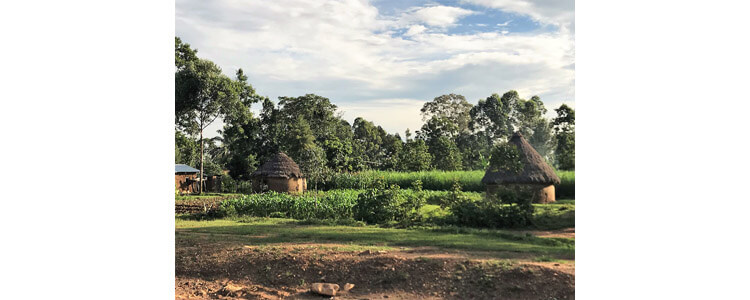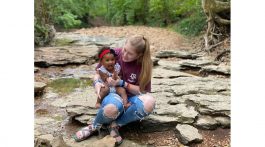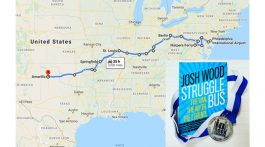Since we’ve recently returned from our trip, Kenya is fresh on my mind. People often ask us why we go. One reason is that is traveling has always been a uniquely educational experience for our family-particularly traveling to a land with a different culture. We all learn volumes about ourselves, our world, our priorities, and our faith every time we go. For those of you who are interested, I thought I would share a series of stories of lessons I’ve learned in Kenya over the years. These stories serve as the backstory to why we feel so tied to this place. Enjoy.
—–
2001. I was 21 years old when my hot girlfriend and I signed up for our first mission trip to Kenya. I prepped for the trip by reading Celebration of Discipline along with a healthy dose of Max Lucado and C.S. Lewis. I knew everything about everything. I wasn’t sure what all I was going to do during our two months there, but I figured I’d bring joy to the joyless, hope to the hopeless, and fix the entire economy of Kenya in the process. There was at least a small chance that I’d win a Nobel prize or something. They’d probably write songs about me upon my return. Also, I planned on proposing to my girlfriend during the trip. She’d be so amazed with my evangelical prowess and ability to single-handedly jump-start the economy of Kenya that she’d be unable to say no. This trip was going to be legendary.
After a bit of time in Nairobi, our guide drove us far out into the bush. Our first stop was the mud hut of a new convert to Christianity. I was told that he had some questions about his newfound faith. “Awesome!” I thought. My moment has come. I had prepared for this moment for a year. I was prepared to answer any question this new Christian might throw at me and to quote some C.S. Lewis in the process. I introduced myself as I entered the hut; and, with the help of my interpreter, we made small talk for a few minutes. Finally, I asked the question (with a bit too much excitement in my voice): “So, I hear that you have some questions about your faith. Can you tell me one of them?”
There was a bit of an awkward pause. I wasn’t exactly sure what was coming; but, I knew that some God-inspired, ingenious response was going to come spilling out of my mouth. I just hoped that my interpreter was up to the task of keeping up with me. Then, the man spoke. “Before I became a Christian, I married two wives. Now, I’m a Christian. Which wife do I divorce?”
Uh oh. I stared blankly back at the man in silence, like an idiot. I glanced awkwardly side to side in hopes that someone would jump in with an answer. I had absolutely no response. Thanks for nothing, C.S. Lewis. Fortunately, my Kenyan guide took pity on me and answered. (in case you are curious, his answer was something to the effect of “Don’t divorce either of your wives. Treat them both as the Bible commands; and, don’t take any more wives.” I don’t remember exactly, though. I was too busy being stupid, theologically speaking.)
I learned a number of valuable lessons that day, but here’s the one I try to carry with me: studying theology is important, but not as important as taking the time to engage people. You could spend a lifetime studying theology and still not know everything. It’s ok to not have all the answers. In fact, I’ve found that people tend to like me more when I don’t have all the answers than when I act like I do. There’s more room for discussion. There’s more room for relationship. Oh, and there’s less room for pride. Sometimes the best place to study theology isn’t in a book. It’s at your dinner table with people who look and think differently than you do. Or, it’s in a mud hut with people who barely speak your language.




No Comment